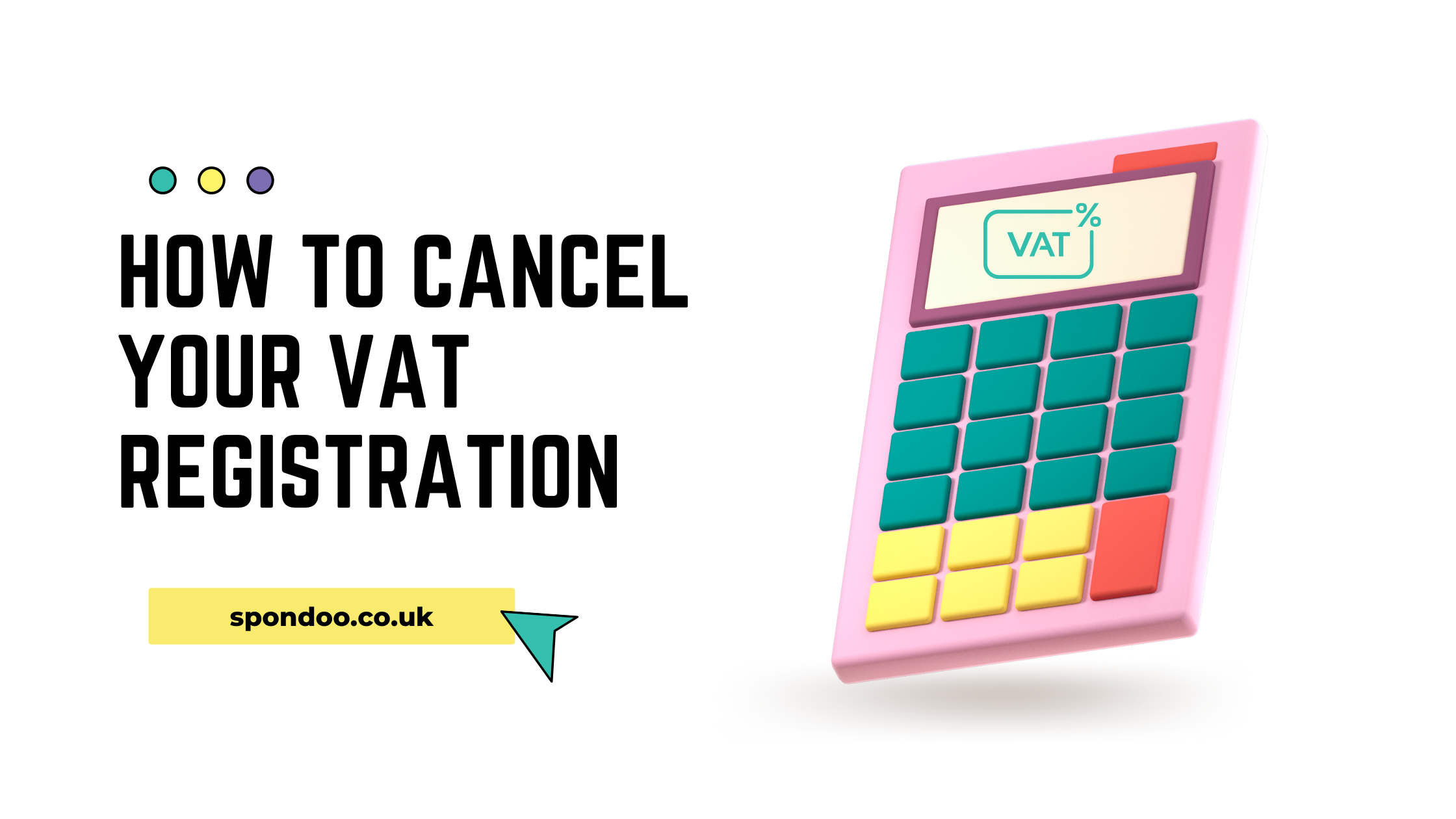
You can voluntarily apply for deregistration if your VAT-registered business’s turnover falls below the deregistration threshold of £83,000. HMRC allows voluntary deregistration if:
However, there are situations where a business must deregister. It is compulsory to deregister if:
If you stop being VAT-eligible, you must notify HMRC within 30 days from the date you stop being eligible – or you may be charged a penalty.
It is crucial to remember that HMRC can cancel your VAT registration once you stop being eligible, even if you do not notify them.
There are two ways in which you can cancel your VAT registration. They include:
You can cancel your VAT registration online by logging into your VAT online account (Government Gateway account) and following the prompts. To deregister online, you must have your Government Gateway user ID and password.
To deregister for VAT by post, you can fill in form VAT7 online, print it and post it to HMRC using this address:
Grimsby Deregistration Unit
Imperial House
77 Victoria Street
Grimsby
Lincolnshire
DN31 1DB
It is advisable to gather all your information before you begin to fill the form because you cannot save a partly completed form, and you must fill in the form fully before you can print it.
HMRC can take up to three weeks to confirm cancellation and send you an official cancellation date after applying for VAT deregistration. HMRC will send cancellation confirmation to your VAT online account or through the post - depending on how you request deregistration. The cancellation date will be when your cancellation took effect (when your business ceased trading) or the date you request cancellation (for voluntary deregistration).
If you deregister for VAT through compulsory deregistration, HMRC may allow the registration to remain open for six months - so that you keep everything in order.
After the deregistration, you must stop charging VAT and keep your VAT records for six years from the date of cancellation.
After VAT deregistration, you must submit a final VAT Return for the period up to and including the cancellation date. You must also account for any stock and other assets you have on this date if:
You do not have to wait until you receive all your invoices before submitting your final return. You can also reclaim VAT on anything you bought for your business while still registered once you get the invoices.
It is worth bearing in mind that HMRC will automatically re-register you for VAT if they realise you should not have cancelled your registration.
It is crucial to check if it is in the interest of your business to remain VAT registered. If your business’s turnover drops below the deregistration threshold, it is advisable to consider deregistering from having to pay VAT. However, you may have to rethink deregistration if the VAT you can claim on purchases makes it feasible to remain VAT registered.
This table summarises the advantages and disadvantages of VAT deregistration:
Advantages | Disadvantages |
| You can maintain your VAT-inclusive prices. It applies if doing so won’t take you over the threshold - and if your customers are happy to continue paying the same price. | You cannot claim back VAT on purchases. |
| Being VAT-free, you can charge less and attract more customers than your VAT-registered competition. | You may allow your accounts to go unmanaged – leading to a backlog. |
| You do not have to submit VAT returns or worry about VAT-related deadlines. | You must keep an eye on your income monthly to check if you reach the re-registration threshold. |
| Not mandatory to keep your accounts up to date every quarter. | Not being VAT-registered can be interpreted as being a small business - you may lose out on business from larger organisations. |
| You do not need to obtain VAT receipts. |
If you continue to trade after VAT deregistration, you must monitor your taxable turnover on a rolling twelve-month basis. Should your taxable turnover in any 12-month period exceed the VAT registration limit (£85,000), you must notify HMRC of your liability to register - within 30 days.
You must also notify HMRC - in the next 30 days - if at any time you expect your taxable turnover to exceed £85,000.
Failing to register or notify a liability to register within the time limits may attract penalties from HMRC.
As a business owner, you must consider your business turnover and all surrounding circumstances before you decide to deregister for VAT. Are you unsure of VAT deregistration implications for your business and situation? Feel free to contact us for professional VAT support and advice.
